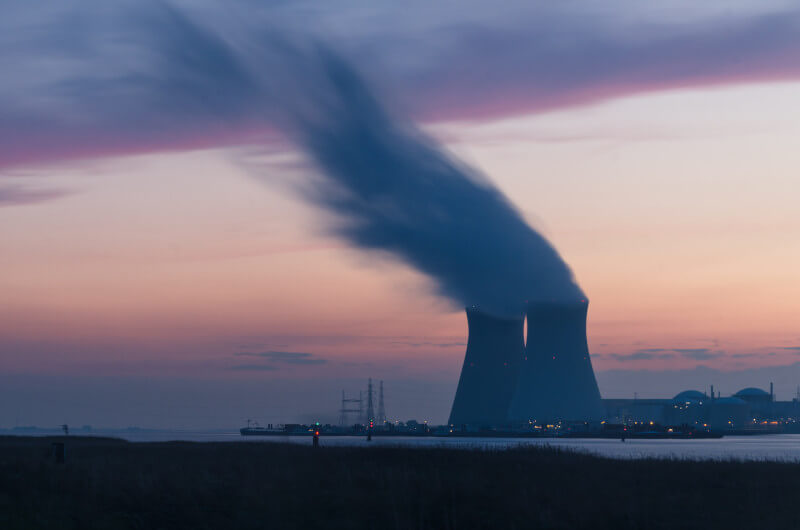Former Eskom CEO has penned a blistering assessment of the ruling party’s practices that have severely affected South Africa’s economy.
Truth to Power, written by Andre de Ruyter, is not the first book to shed light on South Africa’s political and economic problems under the ANC. However, it hits close to home because of the situation that De Ruyter was hired to fix—recurrent power outages that hurt the economy and daily life.
His message goes deeper and is just as alarming, than his account of Eskom’s corruption and incompetence. De Ruyter advocates for this as a means to reduce the burden of government on businesses and industries. Instead, he proposes socially unrestrained economic liberalisation, in which the market is allowed to its own devices (p. 231). As he notes:
“Every single place where governments have tried to allocate resources has failed miserably.”
However, what De Ruyter overlooks is that the ANC has held these views for well over a quarter century.
“My 30 years of studying, writing about, and lecturing on Africa’s political economy have led me to the conclusion that this would reverse the progress made towards redressing the colonial and apartheid-era economic separation.” His kind of neoliberalism, which promotes the benefits of open markets with minimalist state regulation, will lead to a decline in people’s standard of living.
The connection between democracy and progress is the subject of my present studies. It is possible for states to “govern the market” through policymaking, as the late American political economist and historian Alice H. Amsden put it. My 1999 book focuses on the post-colonial experience in Botswana and how it relates to South Africa. When Botswana gained its independence in 1966, it was a developing country with minimal resources. Botswana has grown tremendously over the past 50 years, and its first two presidents are largely responsible for this.
South Africa’s high unemployment rate may be avoided if the government there properly utilized the state to govern and discipline the market. Independent Botswana would have likely become another basket case if its government had followed De Ruyter’s advice.
Instead of neoliberalism, a new social contract between the government, labour, and business is what South Africa requires to generate employment opportunities and address existing inequalities. Objectives for specific capital expenditures on productive sectors would be spelled out in such a contract. However, this would only be possible if there was minimal labour unrest and disturbance.
Key Arguments By De Ruyter

De Ruyter Pinpoints 4 Main Reasons for the Energy Shortage in the Country
ANC cadre deployment refers to the placement of party members within government-run businesses. Many of them weren’t just unqualified for the tasks at hand; they actively attempted to make money off of those tasks through unethical means. The result was the formation of criminal networks that eventually brought down national businesses.
A group of people he refers to as the “coal mafia” controls the flow of coal to Eskom. They shipped high-quality coal overseas while supplying Eskom with low-quality coal. Because of this, Eskom’s power plants frequently went offline.
He claims that Minerals and Energy Minister Gwede Mantashe is preventing South Africa from making the switch to renewable energy sources in his capacity as a former head of the National Union of Mineworkers.
According to De Ruyter, the ANC government was unable to keep skilled white engineers on staff. Despite their theoretical knowledge, recent white and black engineering grads still need to gain practical experience. This meant that when Eskom needed skilled engineers, it couldn’t find any.
Both De Ruyter’s story and the Zondo Commission’s conclusions make it obvious that the ANC leadership, especially in the previous two decades, condoned abuses of public authority. Some of the leaders even broke with the ANC’s ethical ideals by siding with the country’s ultra-rich when income disparity worsened.
The Promises of Neoliberalism Are Empty
The solutions proposed by de Ruyter are just a new form of economic apartheid. The ANC’s neoliberalism and racist policies would supercharge those who already benefit from them. The World Bank’s disastrous policies implemented across Africa in 1981 serve as the basis for his proposed solutions.
He also calls for the privatisation of the energy industry, although knowing full well that the white corporate establishment would benefit the most from such reforms, and his naïve condemnation of the role of government in development (p.112).
The positive economic function of governments in places like South Korea, Taiwan, and Japan is overlooked by de Ruyter’s denial of the role of an activist state in the economy (one that governs the market).
Another program he disagrees with is the basic income award for the poor (p.115), which he believes will just exacerbate the poor’s reliance on the government.
He ignores the fact that white South Africans were granted almost 87% of the country’s land and received massive educational subsidies throughout the country’s segregationist era. They also allowed white exploitation of black labourers, creating the groundwork for the racial economic gap that exists to this day.
Where Did the ANC Government Go Wrong?
The record of the South African government over the previous two decades has been abysmal, despite the flaws in De Ruyter’s arguments. When the ANC came to power in 1994, one of the most valuable things it brought with it was the support of the majority of the population.
- A three-pronged approach was necessary to protect and fortify this critical resource.
- To better provide for the bulk of the poor, the government should have become more actively involved in the economy and the fight against corruption.
- The second objective was to stimulate the economy through the development of new businesses and the preservation and reform of existing ones.
- It was expected that the ANC and its appointees would set the standard for honesty and fairness in government.
However, successive ANC governments, especially those elected after 2004, alienated the majority of the population in three distinct ways.
Following in the footsteps of the old “master” was a clear sign that the emancipation mindset necessary for rebuilding and progress was no longer in trend among the aspiring black elite. A developmental state was ruled out because the government had an unreasonable expectation that it could survive the dominant neoliberal global economic policies that destroyed traditional businesses like the textile industry.
The party’s ineffectiveness was highlighted by the brutal exposure of the ANC leadership’s moral fall during the Marikana massacre and state takeover.
Getting Through the Bad Dream
Corruption and neoliberal policies go hand in hand in the modern developing world; this is a well-known fact. Thus, what is required in South Africa is not an extreme form of neoliberalism but rather a new social agreement that generates employment opportunities and advances social justice. South Africa’s hopes for a pan-African renaissance hinge on this happening.




